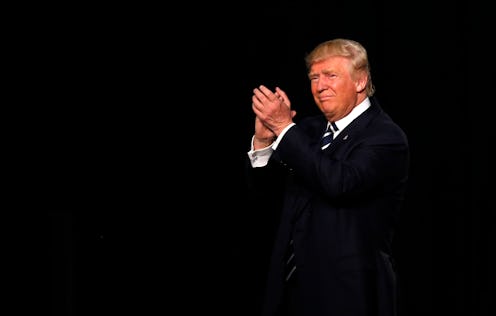News
Vote Recount Efforts Get A Buzzkill From Michigan
Nearly three weeks after Election Day, Michigan certified its election results Monday afternoon, declaring Donald Trump the winner of the state’s electoral votes with a margin of just over 10,000 votes, or 0.3 percent of the total vote. Michigan was the last state to be called following the Nov. 8 contest, though Trump was already well over the required 270 electoral votes needed to win the presidency. Still, with Michigan’s 16 electoral votes, Trump now has a commanding 306 votes to Hillary Clinton’s 232, further diminishing the vanishingly small hopes her supporters had for either an Electoral College upset or an uncovering of errors or wrongdoing in the tabulation of votes.
Trump had been leading in the Michigan count since election night, though as more results came in, his lead narrowed considerably. Still, his razor-thin lead earns him all of Michigan’s electoral votes, and with the results certified, it is expected that Michigan’s electors will vote for Trump when the Electoral College convenes on Dec. 19.
This doesn’t mean necessarily that all is said and done in Michigan. An 11th-hour (or maybe it’s a 13th-hour?) push to recount the votes in the rust belt states where tiny leads gave Trump the crucial electoral votes to claim the presidency is being spearheaded by Green Party candidate Jill Stein.
Michigan’s certification will do little to affect the overall state of the race. Now, while Trump’s Electoral College lead is not as large as Barack Obama’s in 2008 or 2012, nor Bill Clinton’s in 1992 and 1996, it is also not as narrow as George W. Bush’s two electoral college victories in 2000 and 2004.
More bruisingly to the president-elect’s ego, however, is his popular vote loss to Clinton. Currently, Trump is 2.2 million votes behind the Democratic nominee, according to the latest from the Cook Political Report. Trump took to Twitter over the weekend to voice his belief that he would have won the popular vote “if you deduct the millions of people who voted illegally.” Most news organizations were quick to point out — many in their headlines — that there is no evidence that such voter fraud exists.
The controversial and surprising results of the presidential election have once again called into question the relevance and usefulness of the Electoral College, the (from my perspective) archaic method by which the United States chooses its presidents. As video explainer extraordinaire CGP Grey demonstrates in his “The Trouble With The Electoral College” installment, it’s technically possible to win the Electoral College with only 22 percent of the popular vote.
With Michigan’s results certified, we can expect an attempt at a recount in the state to be initiated by Stein and backed by Clinton, but the chance of anything changing is, again, slim. Still, the arduous post-election bureaucratic machine grinds forward, most likely on its way to making Trump our next president, despite his complaints.
